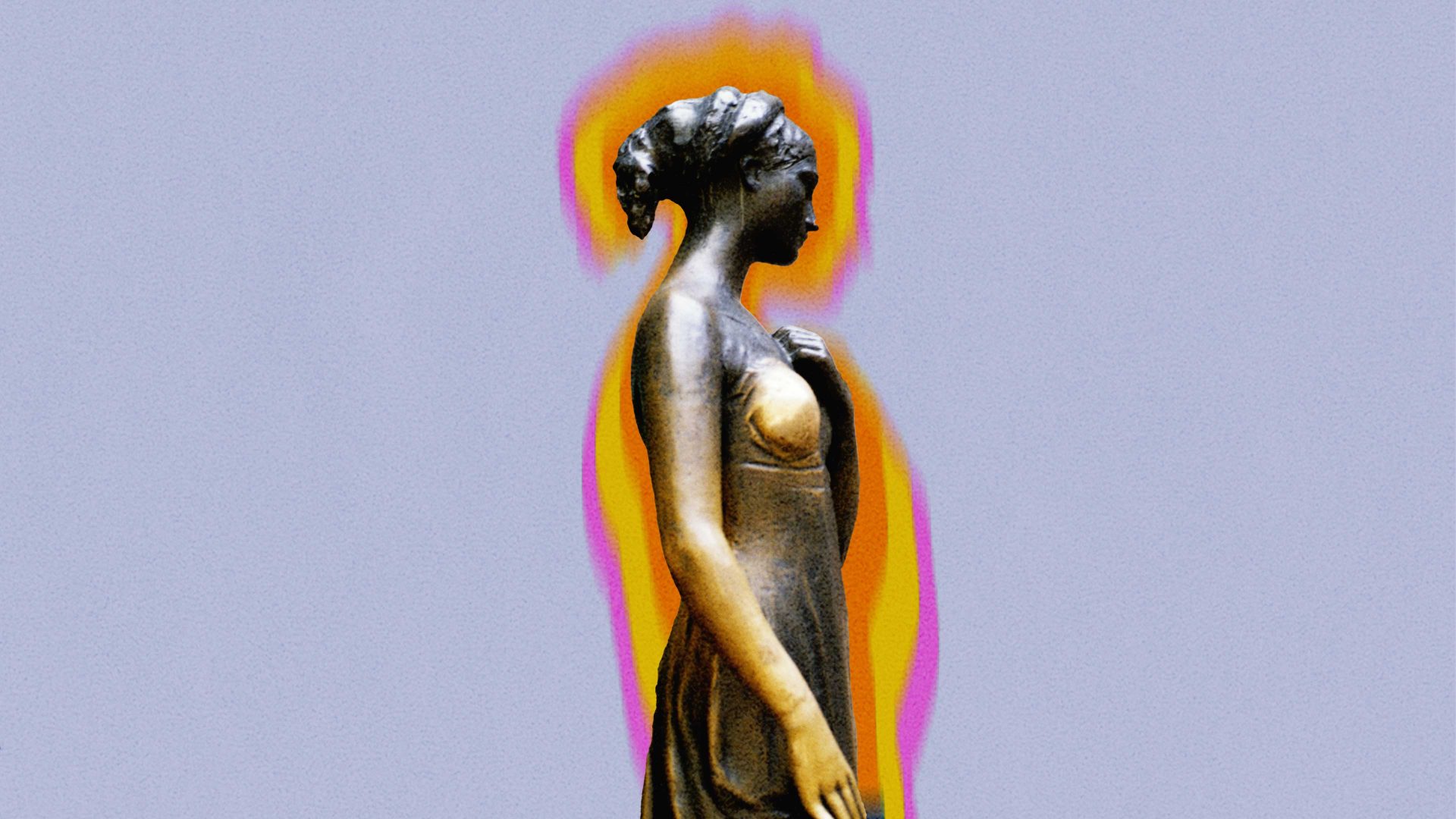In a courtyard in Verona stands a bronze statue of Shakespeare’s tragic heroine, Juliet. It’s next to a 13th-century house that previously belonged to the del Cappellos, thought to be the family on which he based the Capulets.
The original statue, put there in 1972, was replaced because it was at risk of damage from visitors who think that touching the statue’s right breast will make them lucky in love. This is a very weird superstition, considering how things turned out for the star-crossed lover.
Google “Verona Juliet statue” and you’ll be presented with numerous photographs mostly, but not exclusively, of women smiling as they cup the metal breast of a representation of a fictional 13-year-old. In 2014, Juliet had to be repaired because the shiny metal had worn so thin. And now it has happened again – a new hole has appeared.
Perhaps at least some of the thousands of Instagrammers and others who caress the statue really believe it has magical powers, just as some people are convinced they shouldn’t tread on the cracks in pavements, or walk under ladders, or that wearing their lucky socks will make their football team win.
Presumably some people who turn their backs to the Trevi fountain in Rome and throw coins with their right hand over their left shoulder really believe that will bring them good luck and guarantee their return to Rome, and aren’t just doing what the Romans do or did (the superstition of throwing coins into water began with the Ancient Romans appeasing gods to increase their chance of a safe passage).
I’m sorry to break it to you if you think otherwise, however, but throwing a coin over your shoulder won’t bring you good luck any more than throwing salt over your shoulder will ward off evil.
The modern-day Trevi fountain superstition, unlike the Verona statue superstition, does reliably bring some benefits, but probably not the ones that the coin-tossers intend: over a million euros a year are scooped from its waters and given to a charity that helps the poor.
There is no conceivable benefit of throwing salt over your shoulder, except that it might make you feel better if you’re a believer in that sort of thing. Generally, superstitions can be put down to ignorance, fear, and wishful thinking. They may have symbolic and expressive value, too, as rituals. Mostly they are the result of a deep yet unrealisable desire to have more agency in a world in which external factors substantially determine how our lives go.
It’s easy to see how a tendency to superstition might have arisen. People who link cause and effect best survive the longest and are most likely to pass on their genes to subsequent generations. If one thing follows another and we don’t fully understand why, we can still benefit from connecting the apparent cause and effect. Keep your plants well-watered and they will bear fruit; do a rain dance and it will rain afterwards (eventually), even if you don’t understand why.
But the same useful way of connecting actions with outcomes is an example of post hoc ergo propter hoc thinking (Latin for “because it came after this it occurred because of this”) and is prone to lead us astray.
I put on my special socks, and my football team wins; I fail to wear them, and they lose. That doesn’t happen because I put the socks on, or fail to, it just seems that way. If the team wins when I forget to put my lucky socks on, that’s not a fluke.
Luck, as the philosopher David Hume pointed out, is just “ignorance of causes” – if we knew enough about causes and effects we could dispense with all talk of “luck” since we would appreciate precisely why things occur. In the absence of that kind of detailed knowledge, many of us fall into the trap of superstitious thinking.
If someone turns out to be lucky in love after touching a statue’s breast, it doesn’t follow that touching the statue brought that about. Without a plausible account about how that might work, a story about cause and effect that doesn’t rely on magic or Cupid, there’s no reason to believe that isn’t just a coincidence.
There could be some kind of placebo effect, perhaps – someone who believes in the Juliet superstition might become more confident to seek love and so be galvanised to make the most of encounters with potential partners.
But beyond that, surprise: stroking a statue’s breast isn’t going to turn your love life around.



